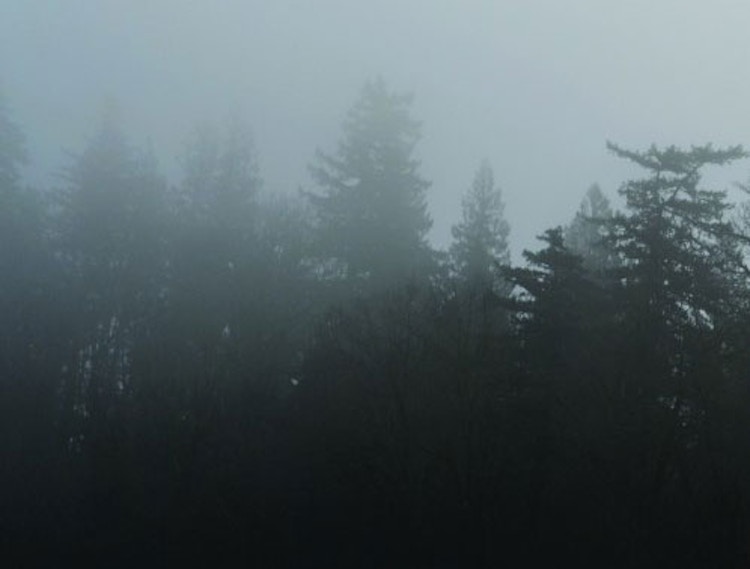"The High Country"

Some bands wound up as cult acts unfairly. With others, it’s easier to figure out why their appeal’s proving doggedly selective, Richmond Fontaine being a case in point.
Not so much for their music: the Portland, Oregon quartet’s blend of expertly executed, subtly updated American rock ‘n’ roll traditions and Willy Vlautin’s remarkable lyrics, which read as ultra-condensed short stories cataloguing the troubled lives of characters stuck in the margins of contemporary US, might not be the most potent of hit parade-baits, but it certainly warrants wider attention. The real issue might just be the band’s ethos of constant reinvention. Having outgrown the rigid orthodoxies of the alt. Country scene with 2002’s stark Winnemucca, Richmond Fontaine have moved from widescreen Americana (2004’s masterful Post to Wire) to skeletal laments of wounded beauty (2005’s The Fitzgerald) and the border country twang of 2007’s Thirteen Cities with a restlessly adventurous zeal that’s bound to confound audiences accustomed to bands hawking the same record again and again with only minor adjustments.
If 2009’s We Used to Think the Freeway Sounded like the River came across as an extraordinarily potent band trekking through the best bits of past incarnations, The High Country revives Richmond Fontaine’s thirst for radical rethinks. Although the band’s tenth studio album marks the return of that fearsome beast, the Concept Album, Richmond Fontaine, reinforced by guest singer Deborah Kelley, take the idea of a set of songs centred on a certain theme to unmapped territory. Richmond Fontaine’s songs have often operated on terms laid out by the lyric sheets, but The High Country breaks the boundary between singer-guitarist Vloutin’s acclaimed career as a novelist and the band more thoroughly than ever before. Set in the logging areas of Oregon and centred on the star-crossed secret affair between a girl trapped in a miserable marriage and a mechanic who returns home unwillingly to help his seriously ill father, the album’s best described as a novel told through songs, with each of the 17 cuts moving the tragic country-noir narrative forward.
Just as you wouldn’t attempt to read a novel by cherry-picking your favourite chapters, The High Country needs to be taken in as a whole for the story to make sense. As such, it demands a lot, but the record’s bleak world of a remote community ravaged by dark secrets and methamphetamine-induced madness where desperate dreams of escape are doomed to be thwarted in the cruellest way possible pays ample dividends for time and attention spent. In terms of atmosphere and settings, it’s reminiscent of Winter’s Bone, although it won’t spoil the surprise for seasoned Richmond Fontaine followers to let on that there’s no room for even a relatively positive outcome for any of the characters on The High Country. Before too long, individual songs – from the weary heartbreak of ‘Let Me Dream of the High Country’ to the soaring but scarred suite ‘The Eagles Lodge’ and the raw, ragged rockers ‘The Chainsaw Sea’ and ‘Lost in the Trees’ – start to shine, turning The High Country into a listening pleasure you’ll revisit way more often than the average tome, evidencing what an impressively expressive outfit Richmond Fontaine have bloomed into from their energetic but limited cow-punk origins.
It’s not quite perfect. The songs tasked with carrying the dramatic culmination of the story are the weakest musically; the few spoken word interludes – apart from the lovely opener ‘Inventory’ – are hampered by a slight clunkiness in dialogue and delivery that’s otherwise entirely absent from the album (if only they’d been replaced by more of the atmospheric instrumentals ala ‘The Girl on the Logging Road’); and it’s a shame that Vlautin, capable of sketching entirely believable characters with a few swift verses, hasn’t managed to come up with a more fully-rounded baddie than the somewhat one-dimensional speed-addled maniac Claude Murray. Even with these minor faults, The High Country deserves to be lauded as that rarest of things: a rock ‘n’ roll having a go at something totally original and, for the most part, succeeding.
Get the Best Fit take on the week in music direct to your inbox every Friday

Tunde Adebimpe
Thee Black Boltz

Julien Baker & TORRES
Send A Prayer My Way

Bon Iver
SABLE, fABLE






